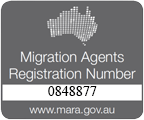A visa applicant has to meet an integrity check called the Public Interest Criteria (PIC) 4020 for almost any visa you apply for. This is a mandatory requirement you need to meet to receive an Australian visa. It is one of the strictest regulations under Australia’s immigration law. Your visa application can be refused due to failing to satisfy its requirements.
If you lodge an application that contains bogus documents or false information, the Department of Home Affairs can refuse a visa for up to 10 years in the best interests of Australia. This is known as a non-grant period.
There is no requirement for the Department of Home Affairs to prove you provided bogus documents or information that is false. They only need to have a reasonable belief that this is so. It can take just the smallest mistake such as an offhand comment from a previous employer, a wrong birth date or a bogus passport for them to refuse a visa on this basis. PIC 40210 also applies to the information and documents you supply to the Commonwealth Medical Officer and Administrative Appeals Tribunal (AAT) if you apply for a review.
The types of visas PIC 4020 affects includes the following categories:
- temporary visas
- student visas
- family visas
- skilled migration visas
- business visas.
Definition of a bogus document
The department defines a PIC 4020 bogus document as being:
- Fake or altered by someone who does not have the authority.
- Obtained because you gave misleading or false information whether intentionally or unintentionally.
- Claimed to have been issued to you but was in fact not issued to you at all.
- Definition of false or misleading information
When you apply for a visa, you must prove your identity by providing true information on your visa application or in relation to a visa you have held in the previous 12 months before the current application. If you provide false or misleading information about yourself or members of your family, you may have your visas refused.
You may breach PIC 4020 when you:
- Provide false or misleading information; for example, claiming to work full-time when you were only casual.
- Conceal information by not answering a question.
- Provide a fake document; for example, provide false payslips to demonstrate you worked for a particular company or fake results of a skills assessment.
But if you realise you have made a mistake and try to correct it, you may not fail PIC 4020. If you are refused a visa for failing to meet PIC 4020, you can apply for a waiver.
What is a PIC4020 waiver?
- If the Department is considering refusing a visa based on PIC 4020, you will receive an invitation to comment and provide reasons why you should not be refused. These will include either:
- Compelling circumstances that affect the interests of Australia.
- Compelling or compassionate reasons that affect an Australian citizen, permanent resident or eligible New Zealand citizen.
Information to support a review
What information you supply to the AAT for review depends on your circumstances and your family unit.
Examples of information to provide related to misleading information or bogus documents include evidence:
- You did not provide the documents or information.
- It is not relevant to your visa application.
- A document is not false or has not been altered.
- The information was not misleading or false when submitted.
Relevant information you can provide to support compelling and compassionate circumstances include evidence:
- There is a serious family situation such as a death in the family.
- The family would be left in Australia without emotional or financial support.
- You would be separated from a child.
A visa refusal would deprive Australia of a “significant business, economic, cultural, or other development”.
It is important to act quickly as you usually only have 70 days from the date you receive a letter of refusal to apply for a review. If you do not lodge an appeal application, you will be excluded from applying for any Australian temporary or permanent visa.
Non-grant period
The non-grant period is up to three years from the date of your visa refusal. Where the refusal is related to your identity, the non-grant period is 10 years.
Applying for a visa after a PIC refusal
When you want to apply for another visa after a refusal under PIC 4020, the following conditions apply:
If you remain in Australia after a visa refusal and do not have a valid visa, you are limited in the type of visa you can apply for.
Where you are in Australia or overseas and have another visa, except for a Bridging visa, you can lodge a new visa application.
Where the visa refusal was related to providing false or misleading information or a bogus document in the three years prior to applying for a new visa that has PIC 4020 as part of its criteria, you will need to provide reasons why it should be granted.
How Direct Migration Experts can help
Dealing with a PIC 4020 is stressful. Direct Migration Experts is a migration agent with a lot of experience making submissions to the immigration department for PIC 4020 waivers and applying to the AAT to review your visa application. We can assist you every step of the way.
